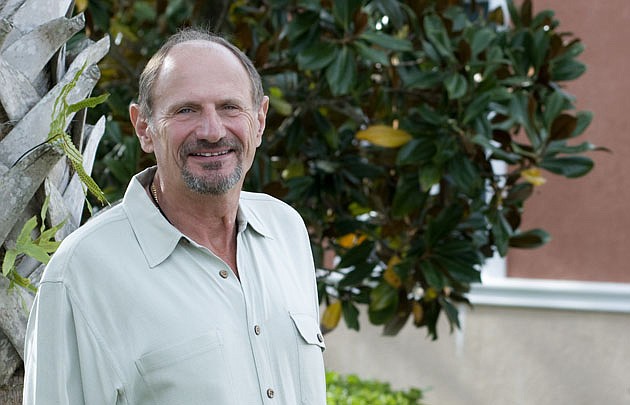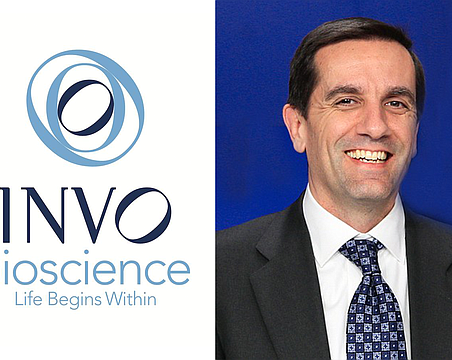REVIEW SUMMARY
Business. ArtisTree Landscape Maintenance & Design, Venice
Industry. Landscape, maintenance
Key. Firm launched a rebranding and marketing project in 2010.
Just before Christmas in 2009, Joe Gonzalez, founder and CEO of a landscaping firm, surprisingly struggled to give money away.
Gonzalez wanted to tip the garbage man. But the trash hauler hustled down the driveway before Gonzalez could give him the envelope with $50. Then, at the end of the street, when Gonzalez caught up, he saw another man standing with a clipboard.
Turns out the garbage man was being timed, and graded.
The experience was an epiphany for Gonzalez, who runs ArtisTree Landscape Maintenance & Design, a Venice-based firm that does everything from landscape renovations to outside pest control. It also spawned a series of business decisions that turned the 230-employee company's recession-era fortunes around.
In fact, simple as it was, the man with the clipboard planted the seed with Gonzalez that he can do that with his crews, spread out through Charlotte, Manatee and Sarasota counties. “We had to make better use of our downtime,” says Gonzalez. “It makes a big difference.”
The move ultimately made the crews about 15% faster, says Gonzalez. It also prompted him to make a bigger, and riskier, decision: He directed the firm's head of marketing to redefine what the company does and where it stands in the marketplace.
It was the birth of a major rebranding endeavor that, so far, has cost $400,000 — with more expenditures to come, Gonzalez projects.
“The reality of my business is that there are a million ways to define what we do,” Gonzalez says. “We aren't doing specific products. I'm not Sears. I'm not selling a hammer.”
When Gonzalez launched the rebrand project, in early 2010, ArtisTree had just come off a year where it had $12.3 million in revenues — a 21.1% drop from 2007, when it posted $15.6 million. Sales would fall even more in 2010, to $12 million.
Gonzalez, though, believed ArtisTree had to become more aggressive to win business. No longer could it rely on word-of-mouth to pick up clients, like it did in the boom. Says Gonzalez: “We looked at it as a choice to play dead or establish ourselves.”
The establishment process began with an evaluation of the firm and how it gets work done. ArtisTree's clients range from country clubs and condo complexes to homeowners associations and master-planned communities.
ArtisTree Marketing Director Sara Roberts and Debra Morrow, a local branding consultant who previously headed up an advertising firm in Fort Worth, Texas, ran the rebranding overhaul. Morrow consulted with ArtisTree for a few months, until Gonzalez hired her earlier this year.
“ArtisTree had a lot of marketing pieces and a brand presence,” says Morrow. “But it didn't have a brand identity.”
Project ownership
The brand identity the firm chose screamed simplicity: deeper roots, higher standards. Outside the company, that fosters an image of ArtisTree as a service and relationship-based company, not a “mow and blow” firm, says Morrow.
Inside the firm, meanwhile, every employee received a laminated card with the brand identity and mission statement. “It's a reflection of who we are,” says Morrow.
In that way, ArtisTree employees are similar to Ritz-Carlton employees who carry around “ladies and gentlemen servicing ladies and gentlemen” cards that define their roles. One principle of ownership, for example, according to the new ArtisTree creed, is “ownership means owning our projects so customers don't have to lift a finger.”
Morrow is such a believer in the cards and the messages that she sometimes walks around the office and hits up employees with pop quizzes. Morrow hands out $5 or $10 bills to employees who have their cards, and can recite specific points.
The next step in rebranding was to update the brochures and marketing materials, many of which made the company look too “Old Florida,” executives worried. ArtisTree also recently redid its website. “We needed to humanize the company,” Morrow says.
The company emphasized landscaping services in the new materials. It made the word landscape bigger in its logo. It also emphasized humor. Says Morrow: “We didn't want to take ourselves too seriously.”
For instance, some perspective clients, mostly property managers, recently received a package from ArtisTree that included a flyer with a picture of a green pair of dice and a microscope.
Under the dice it reads, “their employee background check.”
Next to the microscope it reads, “Ours.”
The package even included a pair of actual green dice.
Tracking responses
The rebranding didn't stop at marketing, either.
Going back to Gonzalez' 2009 driveway epiphany, the company refocused on operational efficiencies, in addition to the ultimate recession-survival mantra: Do more with less.
A key part was the timing studies, which probed how long it took crews to cut, mow and edge. The goal, says Gonzalez, was to increase productivity without sacrificing quality. Landscape and maintenance supervisors studied the results of the tests and worked with crews on how to improve times.
The firm also recently expanded some of its services, a move to both attract more clients and further push its image away from mowing and blowing. It added water features to its landscape work, for one, and it launched a division for hardscapes, which maintains streets, curbs and sidewalks. The firm then turned its tree division into a separate business unit.
The new ArtisTree, moreover, utilizes technology in ways the firm never has before. A big aspect of that is through ArtisTree Response Tracker, or Art. That program, launched in late October, is an online work order system, where clients communicate with account executives and get quick answers to questions.
All told, the investment and effort in rebranding and reshaping ArtisTree seems to have worked. Revenues are up slightly in 2011, Gonzalez says, and the year-end closeout could be ArtisTree's best ever. That includes a new job in Venice for a community with more than 700 residences, where the firm was hired for full maintenance, from mowing to pruning to pest control. The account, now one of ArtisTree's biggest, is worth at least $1 million.
“We were a very quiet company for a lot of years,” Gonzalez says. “Now we are making some noise.”
Survival time
That kind of volume is a long way from 21 years ago. That's when Gonzalez moved with his family from New York City to Venice in search of an entrepreneurial adventure.
The son of a Cuban immigrant, Gonzalez worked his way through college. He took business classes at night. He ultimately became a high-level executive at the American Can Co., a onetime Fortune 500 business.
But Gonzalez grew tired of the constant travel in the corporate world. So when he moved to Venice in 1990, Gonzalez, then 42, bought an air conditioning repair firm for a $1 million. A four-employee lawn mowing service with a handful of clients, Save On Enterprises, was essentially thrown in at the end of the deal. That company booked less than $250,00 a year in sales.
Save On Enterprises is now ArtistTree. The firm was unprofitable for at least the first five years, but Gonzalez used some personal savings to keep it going. The early 2000s building boom catapulted ArtisTree into a $15 million firm by 2007.
The recession, nonetheless, chopped a chunk off the company. Not only did customers cut back on work, but some simply didn't pay their bills. Gonzalez says ArtisTree has taken at least $500,000 in write-offs the past two years from unpaid accounts receivables.
But those losses, and the still-smoldering recession, haven't cowered Gonzalez. He expects to spend at least another $200,000 on marketing and rebranding in 2012, a figure on top of the $400,000 he has already spent.
“I've never really looked over my shoulder,” Gonzalez says. “I'm a risk-taker. It's in my nature. I'm not a lay-down kind of guy.”
'A Big Concern'
The lawn care business might not seem like it's primed for federal government regulation, but ArtisTree, a $12.2 million Venice-based landscaping business, is nevertheless in the crosshairs.
That's because a chunk of the firm's hourly employees are foreign citizens who come to the United States through an H-2B seasonal visa — a politically controversial program that could be outlawed. The H-2B visa provides temporary residency to foreign employees who don't take agricultural positions.
ArtisTree CEO Joe Gonzalez says 50-70 of the firm's 230 employees are H-2B visa recipients. Many come from Mexico, while others are from Europe and South America. A majority of the employees come back every busy season, from April to November. They make up the bulk of ArtisTree's lawn and landscaping crews.
“They work fabulously for us,” Gonzalez says. “They aren't interested in anything but putting their heads down and working hard.”
In Washington, D.C., however, the H-2B visa program is a small piece of a larger debate over immigration policy. Gonzalez says he hears from attorneys that the H-2B section could be cut completely, or at least cut back.
Gonzalez considers that possibility — not the economy, not customer retention — his No. 1 worry. Those employees, he says, would be next to impossible to replace. Says Gonzalez: “That's a big concern of mine.”






